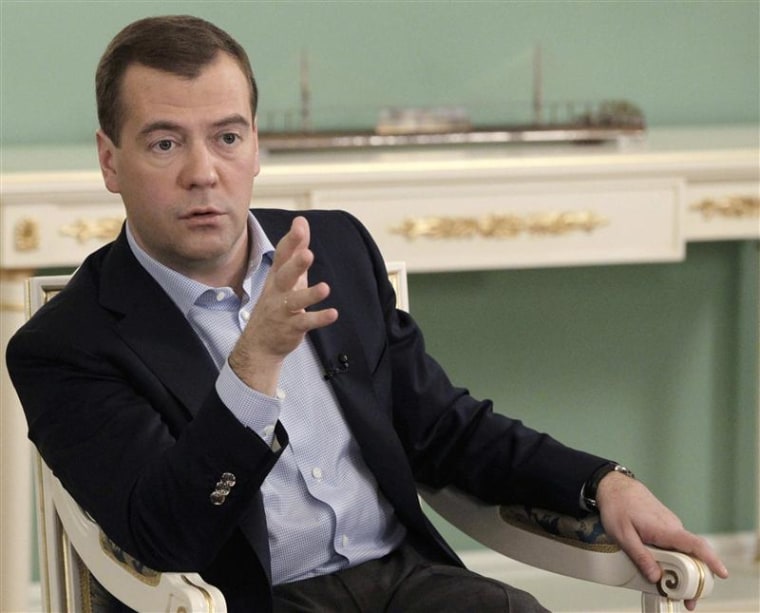Russian President Dmitry Medvedev raised the prospect of criminal prosecution for space mishaps on Saturday following a series of failed launches that have embarrassed Russia.
Earlier this month, a probe designed to bring back soil samples from the Mars moon Phobos got stuck in Earth's orbit, leaving Russia's first interplanetary mission in years with almost no chance of success.
The probe failure came less than three months after a cargo ship carrying food and fuel to the International Space Station burned up in the atmosphere shortly after launch.
"Recent failures are a strong blow to our competitiveness. It does not mean that something fatal has happened, it means that we need to carry out a detailed review and punish those guilty," Medvedev told reporters in televised comments.
"I am not suggesting putting them up against the wall like under Josef Vissarionovich (Stalin), but seriously punish either financially or, if the fault is obvious, it could be a disciplinary or even criminal punishment," he said.
Medvedev has recently made similar calls for strict punishment after disasters blamed on carelessness, corruption and problems with Russia's rusty infrastructure, such as a riverboat sinking in July that killed 122.
The apparent failure of the $170 million Phobos-Grunt ("Phobos-Soil") mission currently stands as the highest-profile embarrassment for the Russian space effort. The 13-ton probe was designed to fly to Phobos, scoop up a soil sample and return it to Earth in 2014. It is also carrying China's first interplanetary probe, called Yinghuo 1, which was supposed to be dropped off in Martian orbit.
Phobos-Grunt was put into Earth orbit in preparation for the cruise to Mars but never fired its engines to leave orbit. This week, the European Space Agency reported that it established contact with the probe for short periods, using a specially modified radio antenna in Australia. But ESA was unable to restore its communication link during attempts Thursday and Friday.
Even if the Russians regain control of the probe, it's too late to conduct the planned sample return mission. Other options may still be available, such as a one-way trip to Phobos or a visit to the moon or an asteroid. But that would require uploading a new program to the spacecraft's computer.
If Phobos-Grunt can't be controlled, experts say its orbit will slowly decay, leading to a fiery atmospheric re-entry in January or February. The spacecraft holds roughly 10 tons of toxic propellants, plus a small amount of radioactive cobalt, and some of that material may survive the descent.
This report includes information from Reuters and msnbc.com.
